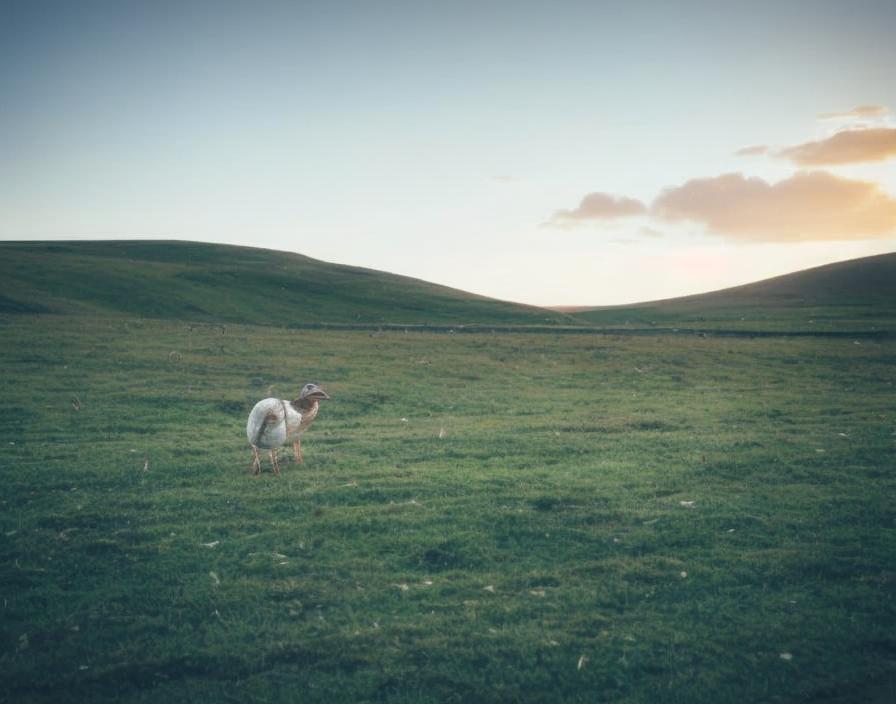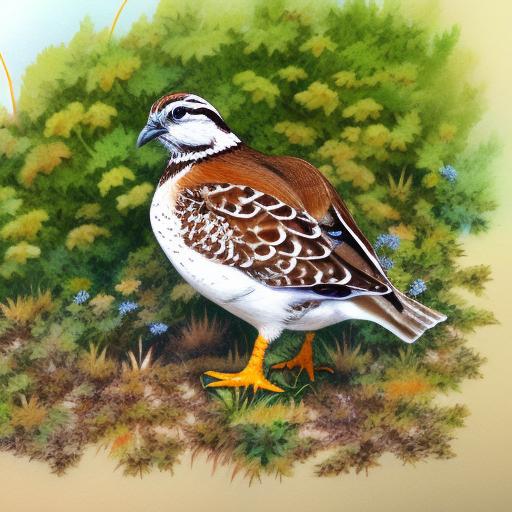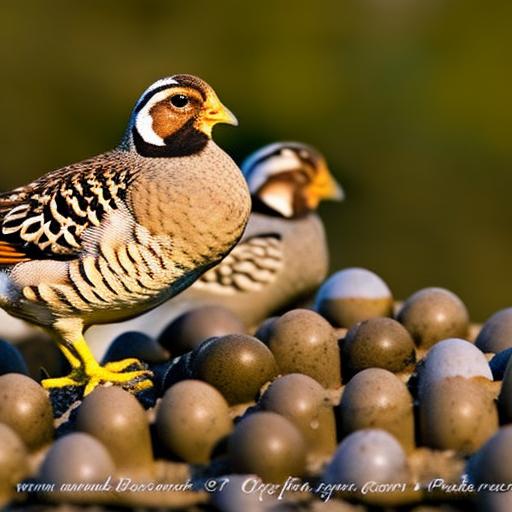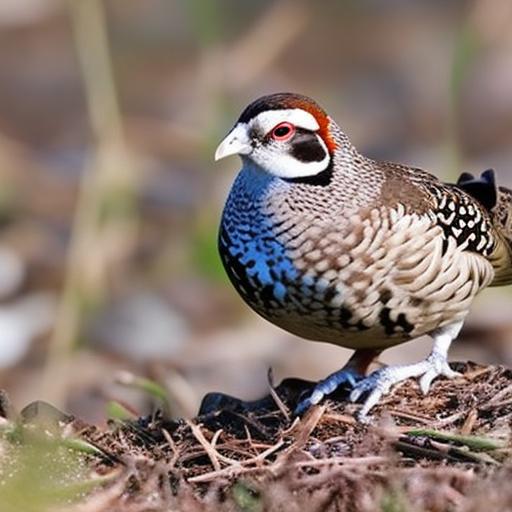Bobwhite quail breeding and raising is a popular practice among farmers, hunters, and wildlife enthusiasts. These small, ground-dwelling birds are known for their distinctive “bob-white” call and are prized for their delicious meat and as game birds for hunting. Breeding and raising bobwhite quail can be a rewarding and profitable venture, but it also comes with its own set of challenges and responsibilities. From legal requirements to health and welfare standards, there are many factors to consider when embarking on a bobwhite quail breeding and raising operation.
Bobwhite quail are native to North America and are found in a variety of habitats, including grasslands, open woodlands, and agricultural fields. They are known for their adaptability and resilience, making them relatively easy to raise in captivity. However, successful breeding and raising of bobwhite quail requires careful planning and attention to detail. From selecting breeding stock to providing proper housing and nutrition, there are many factors that contribute to the success of a bobwhite quail breeding and raising operation. In this article, we will explore the legal requirements, regulations, health and welfare standards, permits and licenses, environmental considerations, and enforcement and penalties related to bobwhite quail breeding and raising.
Key Takeaways
- Bobwhite quail breeding and raising requires knowledge of legal requirements and regulations
- Breeders must adhere to housing and enclosure regulations for bobwhite quail
- Health and welfare standards are important for the well-being of bobwhite quail
- Permits and licenses are necessary for breeding and raising bobwhite quail
- Environmental considerations and conservation efforts are crucial for bobwhite quail breeding and raising
Legal Requirements for Breeding and Raising Bobwhite Quail
Breeding and raising bobwhite quail is subject to a number of legal requirements at the federal, state, and local levels. These regulations are in place to ensure the welfare of the birds, as well as to protect wild populations of bobwhite quail. At the federal level, breeders and raisers of bobwhite quail must comply with the regulations set forth by the U.S. Fish and Wildlife Service (USFWS). These regulations cover a wide range of topics, including the transportation, sale, and possession of bobwhite quail, as well as the importation and exportation of the birds.
In addition to federal regulations, breeders and raisers of bobwhite quail must also comply with state and local laws. These laws may vary depending on the location of the breeding and raising operation, so it is important to research and understand the specific requirements in your area. Some states may require permits or licenses for breeding and raising bobwhite quail, while others may have specific regulations regarding housing, enclosures, and health standards. It is important to consult with local wildlife authorities or agricultural extension offices to ensure that you are in compliance with all applicable laws and regulations.
Regulations for Housing and Enclosures
Proper housing and enclosures are essential for the health and welfare of bobwhite quail. When breeding and raising these birds in captivity, it is important to provide them with a safe and comfortable environment that meets their specific needs. The USFWS has established regulations for the housing and enclosures of bobwhite quail, which cover factors such as space requirements, ventilation, temperature control, and protection from predators.
In addition to federal regulations, breeders and raisers of bobwhite quail must also adhere to any state or local regulations regarding housing and enclosures. These regulations may specify the type of materials that can be used for construction, the size of the enclosure, and any additional features such as perches or nesting boxes. It is important to carefully review and comply with these regulations to ensure that the housing and enclosures for bobwhite quail meet all legal requirements.
Health and Welfare Standards for Bobwhite Quail
Maintaining the health and welfare of bobwhite quail is a top priority for breeders and raisers. Proper nutrition, veterinary care, and disease prevention are essential for ensuring the well-being of these birds. The USFWS has established health and welfare standards for bobwhite quail, which cover topics such as nutrition requirements, disease prevention, and veterinary care.
In addition to federal standards, breeders and raisers of bobwhite quail must also adhere to any state or local health and welfare regulations. These regulations may include requirements for vaccination, parasite control, and biosecurity measures to prevent the spread of disease. It is important to work closely with a veterinarian who is knowledgeable about the specific health needs of bobwhite quail to ensure that all health and welfare standards are met.
Permits and Licenses for Bobwhite Quail Breeding and Raising
In many states, breeders and raisers of bobwhite quail are required to obtain permits or licenses to legally operate their breeding and raising operations. These permits or licenses may be issued by state wildlife agencies or agricultural departments, and they are typically required to ensure that breeders and raisers are in compliance with all applicable laws and regulations. The specific requirements for permits or licenses may vary depending on the location of the breeding and raising operation, so it is important to research the requirements in your area.
In addition to permits or licenses for breeding and raising bobwhite quail, breeders may also need to obtain permits for activities such as selling or transporting the birds. These permits are typically issued by state wildlife agencies or agricultural departments, and they may have specific requirements regarding record-keeping, identification of birds, and other aspects of the business. It is important to carefully review all permit requirements and ensure that all necessary permits are obtained before beginning a bobwhite quail breeding and raising operation.
Environmental Considerations and Conservation Efforts

Breeding and raising bobwhite quail can have an impact on the surrounding environment, so it is important for breeders to consider environmental considerations when planning their operations. This includes factors such as waste management, water usage, and habitat preservation. Breeders should take steps to minimize their environmental impact by implementing sustainable practices such as composting waste, using water-efficient systems, and preserving natural habitats on their property.
Conservation efforts are also important for protecting wild populations of bobwhite quail. Habitat loss, predation, and disease are all threats to wild bobwhite quail populations, so it is important for breeders to support conservation efforts through habitat restoration, predator control, and disease monitoring. By working with local wildlife authorities and conservation organizations, breeders can contribute to the preservation of wild bobwhite quail populations while also maintaining their own breeding and raising operations.
Enforcement and Penalties for Violating Bobwhite Quail Breeding and Raising Laws
Enforcement of laws related to bobwhite quail breeding and raising is typically carried out by state wildlife agencies or agricultural departments. These agencies have the authority to inspect breeding and raising operations to ensure compliance with all applicable laws and regulations. Violations of these laws can result in penalties such as fines, suspension or revocation of permits or licenses, or even criminal charges in cases of serious violations.
It is important for breeders and raisers of bobwhite quail to be aware of the potential consequences of violating laws related to their operations. By staying informed about all legal requirements and working closely with regulatory agencies to ensure compliance, breeders can avoid potential enforcement actions and maintain a successful and responsible breeding and raising operation. Additionally, staying informed about changes in laws or regulations related to bobwhite quail breeding and raising is essential for staying in compliance with the law.
In conclusion, breeding and raising bobwhite quail can be a rewarding endeavor, but it comes with a range of legal requirements, regulations, health standards, permits, environmental considerations, conservation efforts, enforcement actions, penalties that must be carefully considered. By understanding these factors and working closely with regulatory agencies, breeders can ensure that their operations are in compliance with all applicable laws while also contributing to the conservation of these iconic North American birds.
When it comes to breeding and raising bobwhite quail, it’s essential to be aware of the laws and regulations that govern these activities. Understanding the legal requirements can help ensure that you are operating within the bounds of the law and promoting the welfare of the quail. For more information on regulations related to poultry and game bird breeding, check out this informative article on PoultryWizard.
FAQs
What are the laws and regulations on breeding and raising bobwhite quail?
In the United States, the laws and regulations on breeding and raising bobwhite quail vary by state. It is important to check with your state’s wildlife agency or department of agriculture for specific guidelines and requirements.
Do I need a permit to breed and raise bobwhite quail?
Many states require a permit to breed and raise bobwhite quail. The specific requirements for obtaining a permit vary by state, and may include facility inspections, record-keeping, and reporting requirements.
Are there specific regulations for housing and care of bobwhite quail?
States may have specific regulations for the housing and care of bobwhite quail, including requirements for cage size, environmental enrichment, and biosecurity measures to prevent the spread of disease.
What are the regulations for selling bobwhite quail?
Selling bobwhite quail may be subject to regulations, including requirements for health certificates, transportation permits, and sales records. It is important to check with your state’s wildlife agency or department of agriculture for specific guidelines.
Are there any federal regulations for breeding and raising bobwhite quail?
In addition to state regulations, there may be federal regulations that apply to breeding and raising bobwhite quail, particularly if the quail are being raised for commercial purposes. It is important to check with the U.S. Fish and Wildlife Service and the USDA for specific guidelines and requirements.
Meet Walter, the feathered-friend fanatic of Florida! Nestled in the sunshine state, Walter struts through life with his feathered companions, clucking his way to happiness. With a coop that’s fancier than a five-star hotel, he’s the Don Juan of the chicken world. When he’s not teaching his hens to do the cha-cha, you’ll find him in a heated debate with his prized rooster, Sir Clucks-a-Lot. Walter’s poultry passion is no yolk; he’s the sunny-side-up guy you never knew you needed in your flock of friends!







